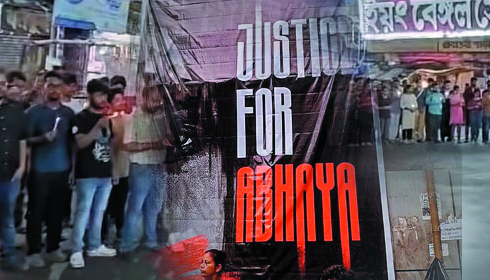
After Immense public pressure West Bengal Govt concedes to demand of the junior doctors
The horrific rape and murder of a junior doctor at Kolkata's RG Kar Medical College sparked a wave of protests that lasted more than a month, with tensions between agitated doctors and the West Bengal administration peaking on September 16. A group of junior doctors from the West Bengal Junior Doctors' Front (WBJDF) attended a lengthy meeting at the Chief Minister's residence, indicating a possible breakthrough in the ongoing deadlock. Despite some progress, the path to resolution remains uncertain, as younger continue to demand specific moves to solve the healthcare system's long-standing challenges.
Junior doctors' significant demands, particularly for hospital safety and security, action against alleged police wrongdoing, and the expulsion of top healthcare authorities, have distinguished the protests, which began 38 days ago. The incident has rattled consinece of the nation the medical community, prompting widespread rallies across the state and elsewhere and calls for urgent healthcare changes.
During the five-hour discussion on September 16 at Chief Minister Mamata Banerjee's residence, both parties attempted to resolve the problem by agreeing on many demands made by the agitating doctors. Banerjee told the journalists after the meeting, "We have accepted 99 percent of the demands." "What else could I do?" She proceeded to announce the transfer of key police and health officials, such as Kolkata Police Commissioner Vineet Goyal and Deputy Commissioner of Police (North), in response to the demands of the WBJDF.
Junior viewed Banerjee's announcement as a major concession. Health authorities Kaustav Nayak, Director of Health, and Debashis Halder, Director of Health Education, will also lose their positions due to their involvement in the RG Kar scandal. "We have not insulted anyone, but the are upset because they do not trust them," the Chief Minister emphasised in response to their concerns.
In addition to personnel changes, the administration proposed significant infrastructure improvements to satisfy the protesting doctors' safety concerns. Banerjee announced the approval of Rs 100 crore for hospital infrastructure enhancements, including CCTV installations and improved lavatory facilities, following consultation with the medical community. The Chief Secretary will also form a Task Force, comprising senior officials from the police and health sectors, to ensure hospital safety.
Despite these concessions, the junior were wary. Despite acknowledging the encouraging improvements, the junior made it clear that they would not return to work until they fully met their demands. A junior doctor spoke briefly after the meeting, saying, "The conversation is positive. We'll decide following the Supreme Court hearing. Without everyone's help, we could not have achieved this win."
The RG Kar incident has highlighted deeper faults within the healthcare system, including what refer to as a "threat culture" in medical colleges. Junior have demanded a total overhaul of the system, including an end to corruption and increased responsibility in hospital management.
According to media accounts, Debashis Halder, a junior doctor, highlighted the medical community's common displeasure. "The state government has yielded to the protesters. We won after 38 days. "This is a victory for the common man, doctors, and nurses," he declared. However, he also stated that the war was far from finished. "We will hold negotiations with the government about this issue." We must completely eradicate the corruption and 'threat culture' in the health sector.
The current junior doctors' strike, which has severely damaged healthcare services in the state, has received national attention. The Resident Doctors' Association (RDA) of Delhi conducted a joint news conference with the WBJDF to raise safety concerns among in West Bengal. The RDA questioned the lack of progress in the investigation into the RG Kar incident and urged the state administration to make stronger efforts to end the strike.
Meanwhile, the Central Bureau of Investigation (CBI) has taken over the rape and murder probe, detaining many officials, including Sandeep, the former head of RG Kar Medical College, and Avijit Mondal, the officer in charge of Tala Police Station. They have been charged with negligence, attempting to destroy evidence, and delaying the filing of a FIR, according to the CBI. Claims of a broader conspiracy underlying the murder have also linked the case to the RG Karscam. The CBI has remanded Mondal in custody while investigations continue.
The Supreme Court was in the process of hearing the case at the time of filing the report, and while the junior doctors express hope for justice, they remain cautious. Senior counsel Indira Jaising, along with numerous other renowned lawyers such as Solicitor General Tushar Mehta and Congress politician Kapil Sibal, will represent the junior doctors in court.
While the latest meeting between junior and the state administration provides a glimmer of hope for resolution, the ultimate outcome is dependent on whether the government keeps its commitments. Junior doctors have pledged to persist in their demands until they receive them, suggesting that a lack of response from the state could lead to an intensified protest.
For the time being, the medical community is in suspense, waiting for both the Supreme Court's decision and the government's future measures. Banerjee appealed to the junior in her message, "Please!" "Back to work this time." The speed at which the government implements the promised adjustments will determine whether the appeal receives hearings.